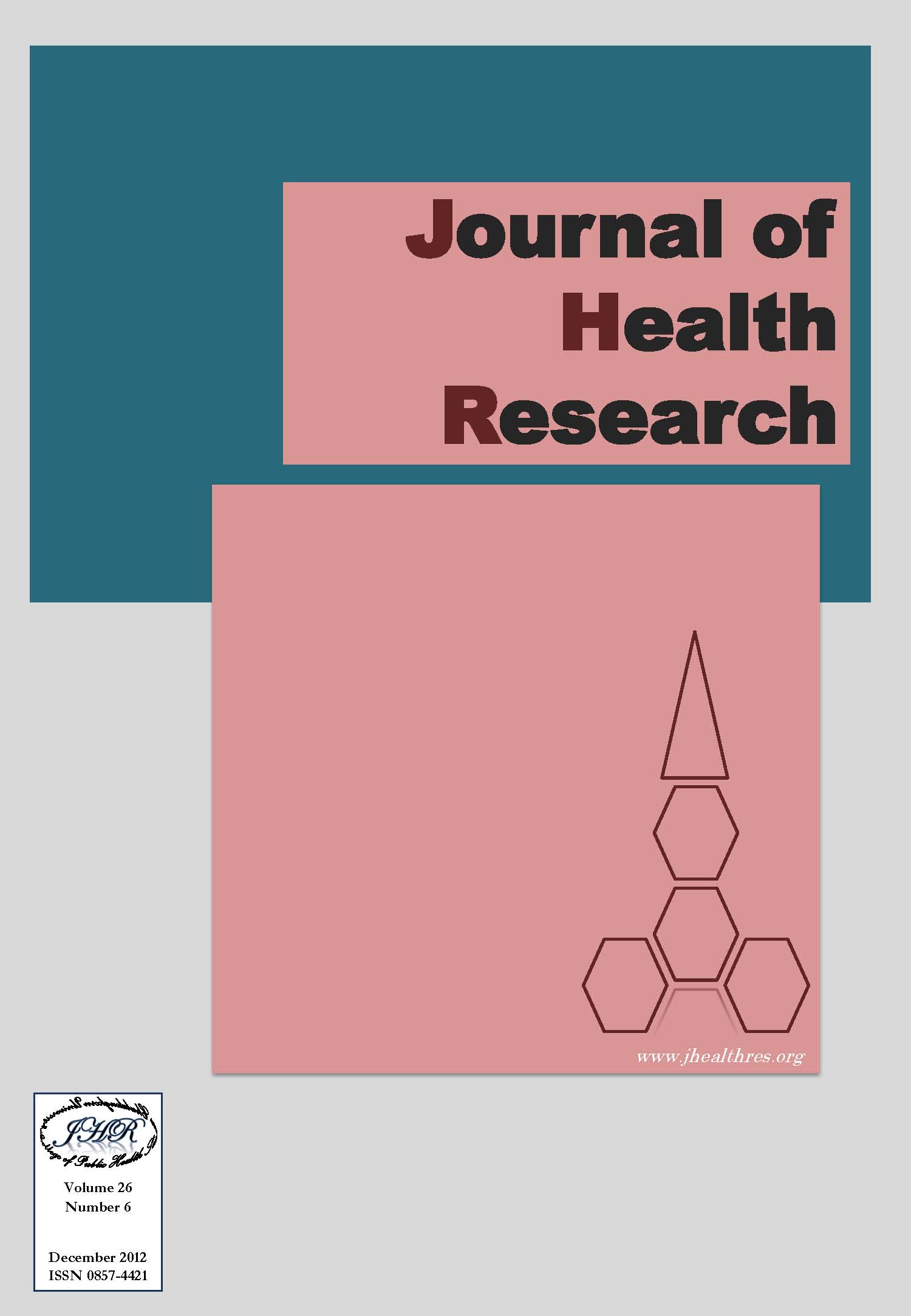Predictors of Quitting Smoking among the Royal Thai Navy Personnel
Keywords:
smoking, predictors, navy, ThailandAbstract
The purpose of this cross-sectional study was to identify the predictors of quitting smoking among the Royal Thai Navy (RTN) personnel by using a self-report questionnaire based on the Transtheoretical model. A multistage random sampling was used in four divisions of the RTN organization. Two RTN units were randomly selected from each division by a simple lottery method without replacement and 553 RTN personnel were selected by the convenience sampling technique. Data were analyzed and using descriptive statistics to evaluate the sample characteristics and logistic regression analysis was used to calculate the odds ratios with a 95% confidence interval of abstinence rates for each variable, with a statistical level at α = 0.05. The results indicated that there were six significant predictors of quitting smoking among the RTN personnel. These were “length of quit attempt” (OR = 1.05, 95% CI = 1.04-1.06), “family support” (OR = 1.51, 95% CI = 1.06-2.15), “consciousness raising” (OR = 1.17, 95% CI = 1.07-1.29), “social liberation” (OR = 0.81, 95% CI =.73-.90), “self-reevaluation” (OR = 0.84, 95% CI =.75-.94) and “counter conditioning” (OR = 1.15, 95% CI = 1.03-1.29).
Based on the results from this study, it is part of conclusion that RTN policy makers should provide support in forming the quitting smoking groups that would act as a solid connection between the smokers in the RTN and their families. The self-confidence and commitment of those personnel for quitting their smoking must be promoted along with a favorable environment that facilitates the smoking cessation.







